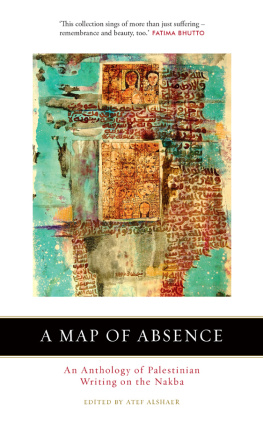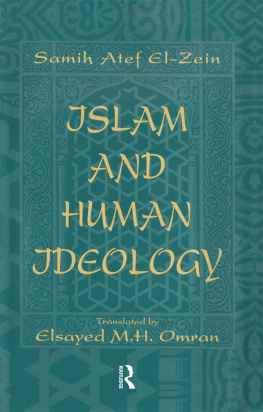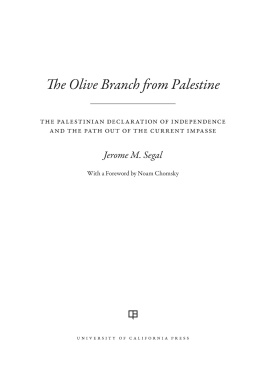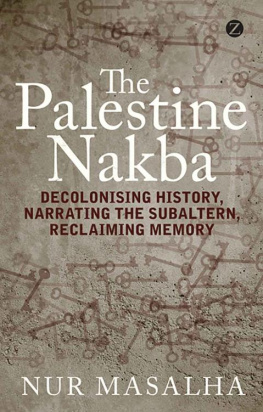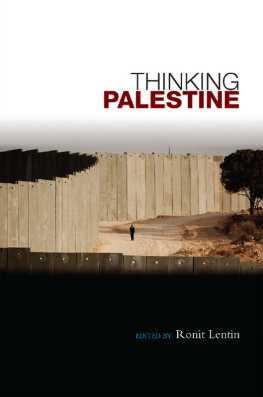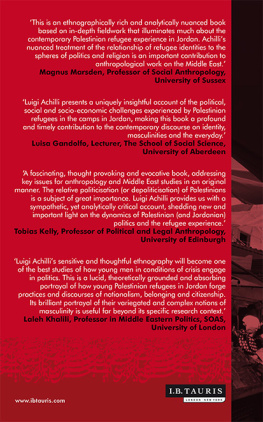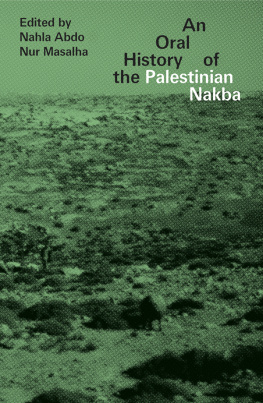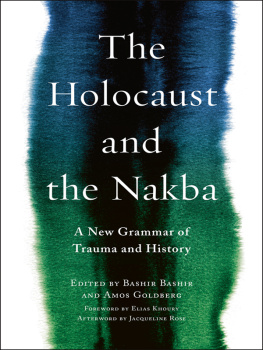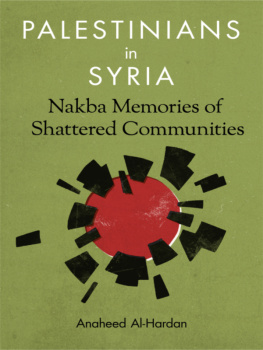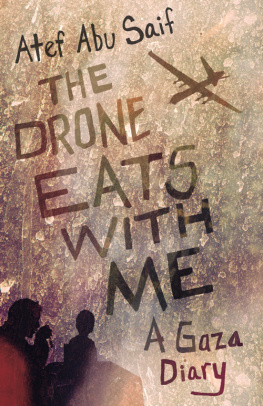Atef Alshaer - A Map of Absence: An Anthology of Palestinian Writing on the Nakba
Here you can read online Atef Alshaer - A Map of Absence: An Anthology of Palestinian Writing on the Nakba full text of the book (entire story) in english for free. Download pdf and epub, get meaning, cover and reviews about this ebook. year: 2019, publisher: SAQI Books, genre: Detective and thriller. Description of the work, (preface) as well as reviews are available. Best literature library LitArk.com created for fans of good reading and offers a wide selection of genres:
Romance novel
Science fiction
Adventure
Detective
Science
History
Home and family
Prose
Art
Politics
Computer
Non-fiction
Religion
Business
Children
Humor
Choose a favorite category and find really read worthwhile books. Enjoy immersion in the world of imagination, feel the emotions of the characters or learn something new for yourself, make an fascinating discovery.
- Book:A Map of Absence: An Anthology of Palestinian Writing on the Nakba
- Author:
- Publisher:SAQI Books
- Genre:
- Year:2019
- Rating:3 / 5
- Favourites:Add to favourites
- Your mark:
- 60
- 1
- 2
- 3
- 4
- 5
A Map of Absence: An Anthology of Palestinian Writing on the Nakba: summary, description and annotation
We offer to read an annotation, description, summary or preface (depends on what the author of the book "A Map of Absence: An Anthology of Palestinian Writing on the Nakba" wrote himself). If you haven't found the necessary information about the book — write in the comments, we will try to find it.
Atef Alshaer: author's other books
Who wrote A Map of Absence: An Anthology of Palestinian Writing on the Nakba? Find out the surname, the name of the author of the book and a list of all author's works by series.
A Map of Absence: An Anthology of Palestinian Writing on the Nakba — read online for free the complete book (whole text) full work
Below is the text of the book, divided by pages. System saving the place of the last page read, allows you to conveniently read the book "A Map of Absence: An Anthology of Palestinian Writing on the Nakba" online for free, without having to search again every time where you left off. Put a bookmark, and you can go to the page where you finished reading at any time.
Font size:
Interval:
Bookmark:

Atef Alshaer is a lecturer in Arabic Studies at the University of Westminster. He was educated at Birzeit University in Palestine and at the School of Oriental and African Studies, University of London, where he obtained his PhD and taught for a number of years. Alshaer is the author of several publications in the fields of language, literature and politics, including Poetry and Politics in the Modern Arab World and The Hizbullah Phenomenon: Politics and Communication (with Dina Matar and Lina Khatib). He is also the editor of Love and Poetry in the Middle East and Language and National Identity in Palestine: Representations of Power and Resistance in Gaza (both forthcoming). Alshaer regularly contributes to academic and media outlets, including the BBC, Independent, Electronic Intifada and Monocle radio.
The Nakba emerges as an ongoing event, but always from the perspective of an expansive humanity that transcends what is specifically Palestinian. The voices in this anthology represent but a fraction of the richness of Palestinian literature in Arabic and English. The editor is to be congratulated on the judicious choices he has made. Yasir Suleiman, Cambridge University and the Doha Institute for Graduate Studies
The pieces in this essential collection stand up for human freedom, creative expression and freedom of speech against occupation, limitation and hatred. These stories will never be forgotten, and Atef Alshaer has collected them through the most talented writers out there. Bidisha
An Anthology of Palestinian
Writing on the Nakba
Edited by
Atef Alshaer

Saqi Books
26 Westbourne Grove
London W2 5RH
www.saqibooks.com
Published 2019 by Saqi Books
Copyright Atef Alshaer 2019
Copyright for individual texts rests with the contributors.
Every reasonable effort has been made to obtain the permissions for copyright material reproduced in this book. If any have been inadvertently overlooked, however, the publishers will correct this in future editions.
Atef Alshaer has asserted his right under the Copyright, Designs and Patents Act, 1988, to be identified as the author of this work.
This book is sold subject to the condition that it shall not, by way of trade or otherwise, be lent, resold, hired out, or otherwise circulated without the publishers prior consent in any form of binding or cover other than that in which it is published and without a similar condition including this condition being imposed on the subsequent purchaser.
ISBN 978-0-86356-990-6
eISBN 978-0-86356-995-1
A full CIP record for this book is available from the British Library.
Printed and bound by Clays S.A.r, Elcograf
C REATIVE writing is a process of engaging with human passions and concerns. However profoundly writing might be embedded within a particular tradition, it is always in a dialogue with present, lived experiences. In the case of Palestine, literature has been a source of national rebirth, documentation and emancipation, engaging with a burdened reality and an ongoing tragedy. This is encapsulated by the Nakba, literally, the catastrophe the moment in 1948 when almost half the population of Palestine were driven from their homes. Villages were ransacked, cities were levelled.
The Nakba of Palestine is commemorated each year on 15 May. It is on this same day that the foundation of Israel has been celebrated annually since 1948. For Palestinians, the Nakba is a day blackened by the memory of the destruction that Israel inflicted on them, robbing them of their homeland and leaving in its stead loss, insecurity and instability. It is also a bewildering reminder that ones nation still exists in all but name.
* * *
At the beginning of the twentieth century, Palestinians, like most Arabs, used poetry as their principal form of artistic expression. Arabic poetry has historically been performative, giving it a power and wide audience in the days before written literacy and the internet made it easier to spread the word. This performance aspect facilitated the memorising of poetry and thus its repetition in a variety of everyday contexts.
We often associate spoken Palestinian poetry from the past century with protests, typically against colonialism and the ravaging of Arab land and people. This intense desire to write and perform drove poets of that era to adapt and hone their literary skills, and a movement towards free verse gathered pace. They were transcending the restrictions of the old formulae and establishing new poetic aesthetics. Moreover, their contact with European literary traditions, mainly British and French, encouraged them to explore the short story and novel forms in Arabic for the first time. But that is not to say that their work was no longer evocative of earlier, classical Arabic traditions. In particular, the classical poetic tradition, which extends from the fifth century to the thirteenth century covering the pre-Islamic, the Umayyad and the Abbasid periods, informs the language of Mahmoud Darwish and other Palestinian writings. Indeed, all modern literary Arabic writing is in one form or another indebted to Classical Arabic literature and the spirit of innovation that it represented.
Palestinian literature emerged in the context of resisting the colonisation of the writers land. This necessitated the assertion of historical continuity, the statements of an ancient community linked to the broader Arab world, sharing with it a long-founded literary heritage as well as social and cultural norms. Yet with time, Palestinian literature developed in reaction to the internationalism and modernisation that several literary schools in the Arab world and beyond advanced. It evolved to transcend strict nationalist loyalties, even critiquing tribal forms of nationalism. Increasingly freed from ideology and its fetters, it was newly equipped to express the plight of humankind all of our struggles, frustrations, insecurities and aspirations in fluid, and sometimes subversive, ways.
Yet it would be a gross simplification to suggest that a linear path has been followed. While this anthology takes a chronological view of Palestinian literature, starting in the 1930s, the writing here remains preoccupied with the same unanswered questions concerning the dispossession of the Palestinian people and their conditions of being occupied. After all, the quest for Palestinian freedom has yet to bear fruit.
* * *
This collection consists of poems, short stories, excerpts from longer fiction and memoirs of the Nakba. Some of the texts have been translated from Arabic while others were originally written in English. A solid and enduring constituency of Palestinians are writing in English, in ways that have brought the Palestinian tragedy to the attention of the wider world in candid and eloquent ways. Among their number are the Palestinian scholar and thinker Edward Said, Salman Abu Sitta, Ghada Karmi, Ramzy Baroud and Fady Joudah. The selected texts speak to different Palestinian communities, including those within historic Palestine, those in the Occupied Territories and the Palestinian diaspora.
Also presented here are works by authors who have had intimate connections with Palestine, such as the Lebanese novelist Elias Khoury. Finally, we also celebrate the work of emerging writers in Palestine, such as Amira Sakalla, whose work is published here for the first time.
Font size:
Interval:
Bookmark:
Similar books «A Map of Absence: An Anthology of Palestinian Writing on the Nakba»
Look at similar books to A Map of Absence: An Anthology of Palestinian Writing on the Nakba. We have selected literature similar in name and meaning in the hope of providing readers with more options to find new, interesting, not yet read works.
Discussion, reviews of the book A Map of Absence: An Anthology of Palestinian Writing on the Nakba and just readers' own opinions. Leave your comments, write what you think about the work, its meaning or the main characters. Specify what exactly you liked and what you didn't like, and why you think so.

